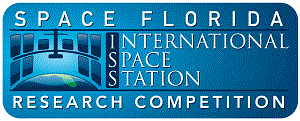 The World Health Organization has declared Hepatitis C a global health concern, and Egypt is at its epicenter, with nearly 8% of its population diagnosed with a chronic hepatitis C infection — the leading cause of liver cirrhosis and cancer.
The World Health Organization has declared Hepatitis C a global health concern, and Egypt is at its epicenter, with nearly 8% of its population diagnosed with a chronic hepatitis C infection — the leading cause of liver cirrhosis and cancer.
A pair of investigators from Technische Universität München (TUM) in Germany won a once-in-a-lifetime opportunity to board the space station thanks to their winning project entitled, “Egypt Against Hepatitis C Virus,” which they submitted to the International Space Station (ISS) Research Competition, hosted by Space Florida in cooperation with NanoRacks LLC.
The project involves the crystallization of two HCV proteins in microgravity. On September 20, the winners lifted off from Cape Canaveral to bring these proteins to the International Space Station. They will return with the crystallized proteins after 4 weeks.
Crystallizing virus’ proteins is negatively affected by the presence of gravity. The two scientists will attempt to produce superior HCV protein crystals in microgravity conditions in order to better visualize them, and pinpoint potential targets for treatments. The two HCV proteins to be examined on the ISS are 1) NS5B, which allows genetic material to multiply in affected cells, and 2) NS3, a protein “cutter” that turns chains of proteins into distinct virus proteins during replication. They are specific to a genotype of hepatitis C that is most prevalent in Egypt.
Akram Amin Abdellatif, one of the researchers and a TUM alumnus, said that they designed the project hoping to gain a deeper understanding of the HCV and identify its weaknesses. He won the prize together with TUM doctoral student Hanaa Gaber of the Institute of Virology. Out of 600 project submissions, theirs is one of 8 chosen projects to be carried out on the ISS. It is the only submission from outside the US that made the cut, and is the first research to be conducted by Egyptians on board the ISS.

